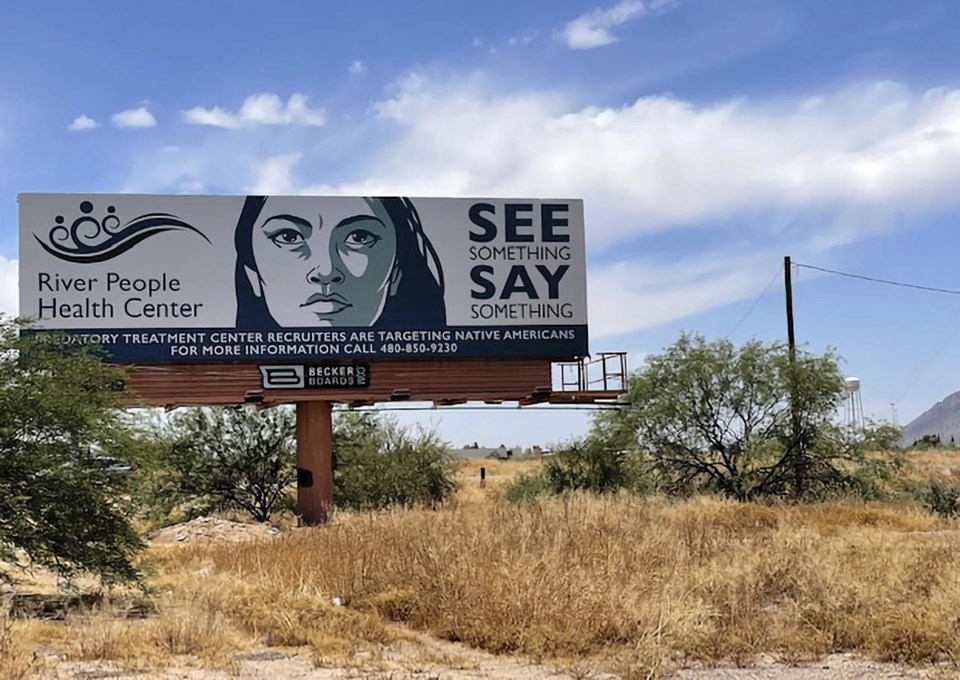PHOENIX (AP) — A widespread Arizona Medicaid scam that has left an unknown number of Native Americans homeless on the streets of metro Phoenix is being declared a public health state of emergency by the Navajo Nation as fraudulent sober living homes lose their funding and turn former residents out onto the streets.
The emergency declaration was issued late last week by the Navajo Nation Commission on Emergency Management and signed this week by Navajo Nation President Buu Nygren, according to documents posted on the Facebook page of the tribe's Operation Rainbow Bridge, which was created to deal with the scam's effects on its enrolled members.
“There are significant concerns about the impacts to Navajo Nation lives from abrupt displacement that have affected an estimated 5,000 to 8,000 Navajo individuals, particularly in the exacerbation of medical, and public health risks associated with lack of immediate intervention and preventive services,” the declaration reads.
The declaration allows the tribe to add more personnel, travel resources, medical supplies, funding and other means of support to address the ongoing problem.
Navajo Nation Attorney General Ethel Branch said earlier this month that the tribe's law enforcement teams over the course of several weeks made contact with more than 270 Native Americans released onto the streets of metro Phoenix by sober living homes that have been targeted by a state crackdown on fraudulent billing.
Navajos account for most Native Americans grappling with addictions who have been affected by the scam and subsequent crackdown.
The Salt River Pima-Maricopa Indian Community has also warned its members about the deceptive providers with billboards outside its reservation in Scottsdale, Arizona.
The Arizona Health Care Cost Containment system, the agency that manages Medicaid payments for the state, this week announced several more changes that aim to stop payments to deceptive organizations that have been billing for services that are not provided, not appropriate, or unnecessary.
The agency's website says a six-month moratorium is being placed on new enrollments for certain types of residential and outpatient behavioral health providers and non-emergency transportation services. Some providers will now be required to have background checks and site visits.
Providers also can no longer bill the state for Medicaid money on behalf of others, and certain kinds of claims are now being flagged.
Payments have been cut off to more than 100 of providers suspected of fraudulent billing.
Arizona officials announced in May they were investigating a huge Medicaid funding scam that potentially affected thousands of people, most of them believed to be Native Americans.
State officials believe the fake homes have defrauded Arizona out of hundreds of millions of its share of federal Medicaid dollars. Arizona authorities so far have seized $75 million and have issued 45 indictments in the investigation that also includes the FBI and the U.S. Attorney General’s Office.
Anita Snow, The Associated Press



